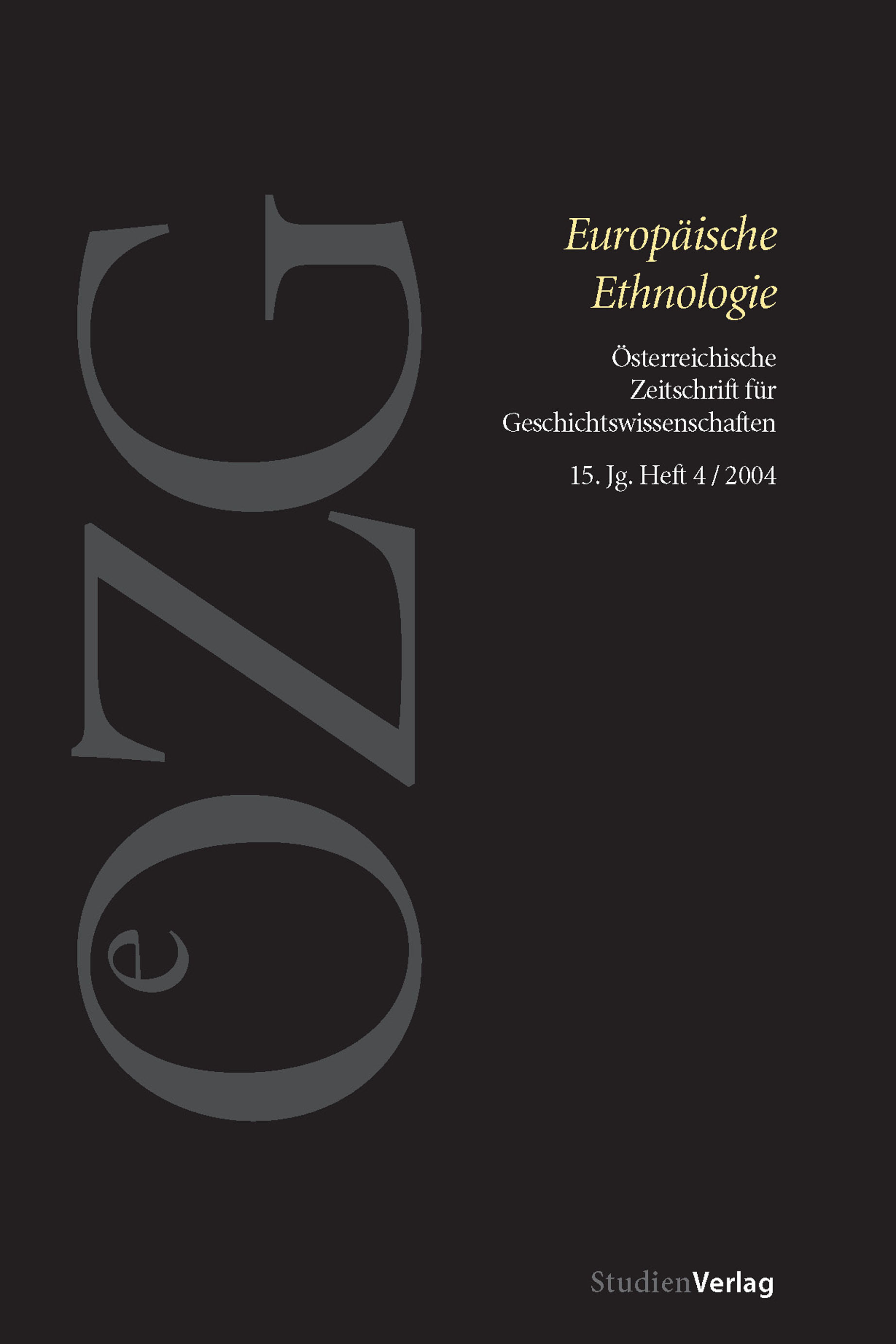Europäische Ethnologie und Gemütlichkeit. Fragen einer Alltagskulturwissenschaft
DOI:
https://doi.org/10.25365/oezg-2004-15-4-3Abstract
European ethnology has become a field of empirical cultural study that investigates the everyday orientation and forms of practice subjects engage in within the context of their actual lives. This contribution uses the example of an expression held to be typically German (Gemütlichkeit) to examine past and present approaches the field has taken. Part of this analysis addresses socially ascribed meaning and the context of middle-class cultural patterns, but the main focus is on this term as a subjective, everyday state of being. Taking this perspective allows one to examine methodological approaches in terms of their appropriateness for studying what is regarded as self-understood and everyday; it indicates the potential as well as the limits of current approaches, most particularly the use of qualitative interviews. Responses by informants about Gemütlichkeit, supposedly a very individual state or emotion, are surprisingly uniform and barely differ from one person to the next. This monotony of response, however, gives both methodological and theoretical stimulus to the everyday as a research topic. For the everyday removes itself from a precise reconstruction and does not come in the form of stories. Instead, it expresses itself in culturally normed, harmonized, and stereotyped images.


